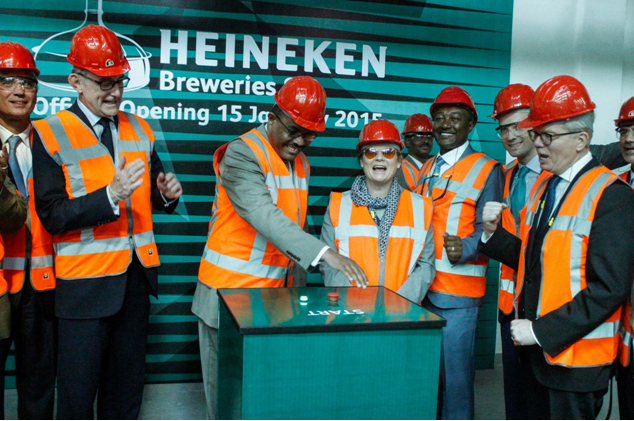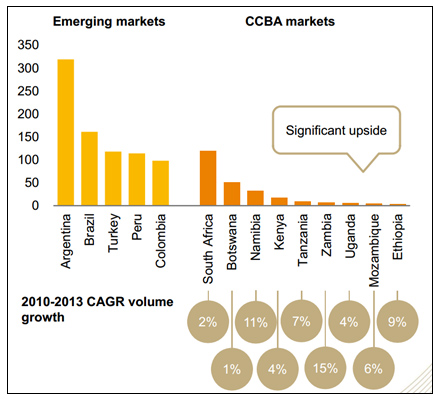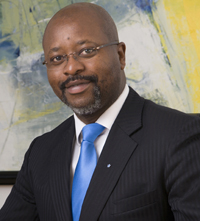Africa
KHS GmbH, one of the leading manufacturers of filling and packaging systems for the beverage, food and non-food industries worldwide, is intensifying its customer service in Africa through a cooperation with the international Portuguese AMAL Group.
Africa
News-wise, it was not a good month for SABMiller. In February 2015 the world’s number two brewer had to report the departure of two top executives. The first to resign was MillerCoors’ CEO Tom Long, following the announcement of a 12 percent fall in MillerCoors’ fourth quarter underlying net income. MillerCoors, the number two brewer in the U.S., is a joint venture between SABMiller and Molson Coors. Mr Long, 56, intends to retire on 30 June 2015. He has served as CEO since 2011.
Africa
In a ceremony attended by 300 guests, including the Ethiopian Prime Minister Hailemariam Desalegn, Mrs Charlene de Carvalho-Heineken and hosted by Jean-François van Boxmeer, CEO of Heineken, the EUR 110 million brewery was unveiled on 15 January 2015.
Africa
Since the announcement early this year that SABMiller would move further into soft drinks, observers have been waiting for something to happen. Here it is: Coca-Cola and UK brewer SABMiller plan to combine their soft-drink bottling operations in southern and eastern Africa, in a deal that reflects both companies’ efforts to broaden their beverage offerings.
Africa
Pentair opened a new regional office in Nairobi, Kenya, in September 2014. The company, a global water, fluid, thermal management and equipment protection partner, delivers industry leading products, services and solutions. The new regional office, located in Nairobi’s main business district Westlands, will enable Pentair to provide exceptional customer service in the East African market through local presence.
Africa
After importing beer into Namibia for over 20 years, SABMiller finally in mid-August 2014 had its own brewery up and running. It’s located in Okahandja, 70 km north of the Namibian capital Windhoek.
Africa
Doehler (Döhler), global producer, marketer and provider of technology-based natural ingredients, ingredient systems and integrated solutions for the food and beverage industry has founded a joint venture with the food & beverage division of Afriplex. Located in Paarl, South Africa, Afriplex is one of the market leaders in natural extracts in Africa. Alongside its core competence in the field of botanical extracts, Afriplex also provides emulsions and compound solutions for national and international customers in the food & beverage industry. Their common goal is to deliver integrated ingredient solutions that are tailored to the needs of Southern African markets in terms of taste preferences and technological and regulatory requirements.
Africa
It will be an “all out” rush to the capital’s watering holes once Heineken open their new brewery in Addis Ababa, Ethiopia’s capital and major beer market in July 2014. The brewery in Kilinto, on the outskirts of Addis Ababa, will be Heineken’s third plant in the East African country and will have an annual capacity of 1.5 million hl. It represents an investment of USD 150 million.
Africa
The inaugural food & drink technology Africa trade fair and conference has been deemed a success by all
Africa
Heineken announced on 9 May 2014 that its majority-owned subsidiaries Nigerian Breweries and Consolidated Breweries will merge, pending regulatory approval. It is intended that Nigerian Breweries, as the remaining legal entity, will stay listed on the Nigerian Stock Exchange after the completion of the merger.





